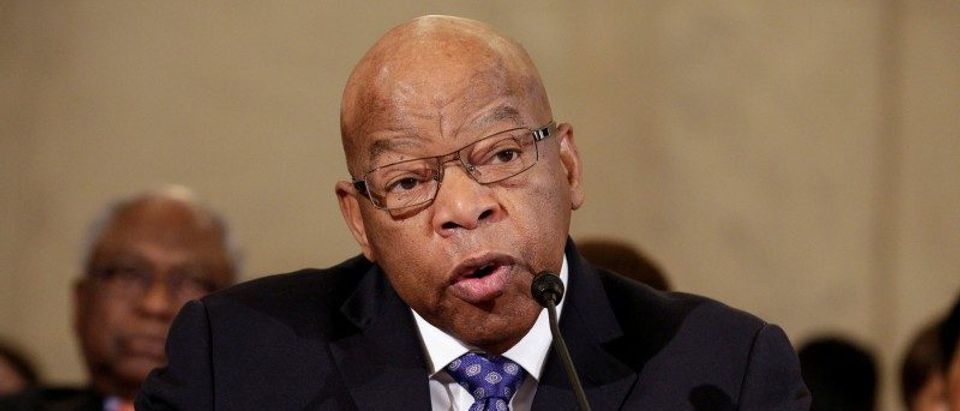“Conservative” commentator and Weekly Standard editor-at-large Bill Kristol found his NeverTrump voice again on the weekend, exhibiting his best shocked and appalled posture and increasing liberal pandering as he Tweeted:
“It’s telling, I’m afraid, that Donald Trump treats Vladimir Putin with more respect than he does John Lewis.”
It is perhaps more telling that Kristol would even weigh-in on this absurd issue because defending Georgia congressman John Lewis has absolutely nothing to do with declaring one’s solidarity with civil rights – anymore than Lewis’s accomplishments in the civil rights arena provide him with any ironclad right to inject poisonous political statements into the public discourse with no expectation that he be challenged on these careless talking points. But that of course is exactly what too many bankrupt politicians playing their race cards, consistently reminding us of their special civil rights status, expect from the mainstream media.
It’s the febrile politics of a sanction-providing racial victimization and it’s played so adeptly by the Al Sharptons and Jesse Jacksons of the world.
Kristol might fret over whom President-elect Trump shows more respect towards – Putin or Lewis – but clearly Lewis has not even a fraction of respect for Trump. Lewis had absolutely no reason to declare the incoming president “illegitimate” and Trump had every reason – and right – to strike back, Lewis’s glorious civil rights legacy notwithstanding and no matter how close to Martin Luther King Day the remarks were made.
In fact, the exchange at this yearly MLK Day juncture should give us pause to examine how civil rights for black Americans have evolved since King first demonstrated a non-violent path towards equality. King was a vastly different leader with a profoundly different message than the political shadows who envelope themselves in his iconic status but rarely in his message and or his actions.
King had a visceral belief in a color-blind policy, one that rejected a unique position for any race but calmly accepted the obvious fact that race should not determine one’s status in society. It was a joyous repudiation of the racial segregation that King had endured and based on the assumption that racial cooperation was not only possible but inevitable. It is an idea whose time has apparently passed for too many African-American activists who advocate a reverse segregation. We live in a society where academics have both the temerity and the intellectual indolence to suggest that the phrase “all lives matter” is somehow racist.
If only Black Lives Matter, then we are living in a society that is just as racially divided and unbalanced as the era of Jim Crow.
Much could be said of King’s non-violence, truly a foundation of his movement and his approach to civil rights. Even in his own lifetime he was confronted by forces – led by Malcolm X – who rejected that position. Violence may have become of a reflexive component of racial protest but, quite ironically, it is often a bloody means that does not even pretend to serve a political end – witness the carnage of black lives not mattering to other blacks in Chicago’s daily maelstrom of homicide.
But King differed from current liberals in his refusal to characterize black Americans as perpetual victims; the victimization narrative today might not to anything to elevate the economic status of blacks but it certainly is a tried and true wedge issue and a source of political control. Can you imagine the “I Have a Dream” speech being delivered today? It would be dismissed as sentimental hogwash. The irony is that while one component of King’s dream was fulfilled in the election of President Barack Obama, after eight years of his presidency, most black Americans are no closer to grasping economic equality and just as committed to victimhood.
Obama failed all Americans – especially those who felt they had most to gain from his political and economic leadership.
Trump famously asked African-Americans during the election campaign, “What have you got to lose?” Some responded by voting for him. The majority did not.
Ironically, Trump may turn out to be their president because he won’t spend his term in office naval-gazing about the roots of inequality and the origins of discrimination. Like King, he’ll look at all Americans and judge them by their character, not the color of the skin. If he gets the economy running again, all Americans will benefit.
Personal success and financial prosperity are perhaps the best revenge and remedy to victimization.
Follow David on Twitter.


